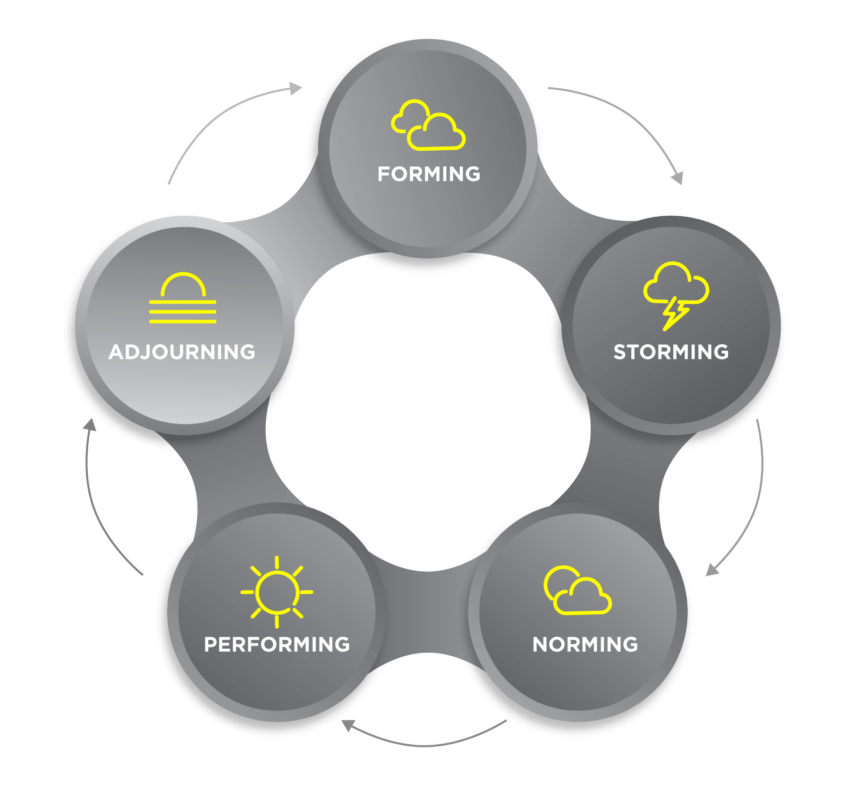The Tuckman Stages of Team Development was designed in 1965 to aid leaders and organization team heads in helping their teams grow, face challenges, handle problems and deliver results. The Tuckman Stages involve the following stages in order: The forming – storming – norming and performing stages.

Let’s talk about all the stages in sequence:

The team meets and addresses the agenda of the meeting which usually are the challenges, and or problems that need to be solved. Team members can behave independently now. They can appear motivated to handle the tasks but will always begin uninformed, so it is essential to have all leaders become efficient communicators as to the goal and problem that needs to be solved. During this phase, you can see more mature team members take on a more appropriate behavior. The key to this stage is the discussion of defining the scope of the task, how to approach it and tangential concerns.

Or better coined as brainstorming, is the second stage where team members hash out ideas and start gathering each other’s trust. Opinions can be voiced out; conflicts may arise, and power struggles will be evident. At this phase individual working styles will be acknowledged and group members will see what it is like to work as a team and the hierarchy of positions in the group. This part is where the group can freely express feedback and discomfort or give reactions on load, responsibility, and other comments on other team member’s duties. The leader of this meeting should be able to facilitate and manage all team members’ feelings, expectations with set ground rules for communication and resolving issues or resentment, competition or a feeling of unfairness in order to efficiently move onto the next phase.

Once all feelings are out, comments and feedback is heard freely and without judgement or unprofessional conduct— these resolved disagreements and personality clashes result in greater intimacy, and a spirit of cooperation. This happens when the team is aware of competition, and they share a common goal. In this stage, all team members take responsibility and are motivated to work together for the goal that was set. They start tolerating the whims and fancies of the other team members. They accept others as they are and try to move on.

Now that all norms, instructions, feelings, and issues are facilitated and decided upon, by this time, all team members are empowered and knowledgeable. The team members are now competent, autonomous, and able to handle the decision-making process without supervision. Opposition is expected and allowed if it is channeled through means acceptable to the team.
July is Global Enterprise Agility Month, and Rocket Station seeks to become part of this venture by sharing tips, tricks, and tools to help people become better leaders, strategic thinkers and team members.
RELATED STORIES



SHARE


